Classic cars facing extinction due to new generation of mechanics unable to fix them
Have we gone from the golden age of international motoring to facing the last days of the classic car?
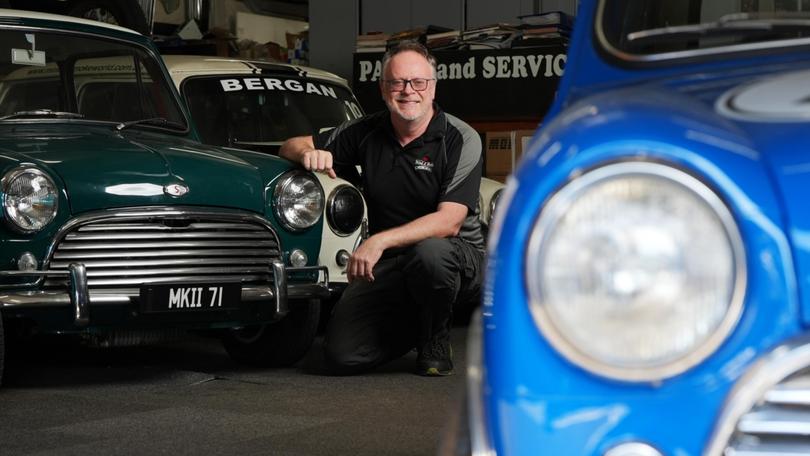
“They wouldn’t be able to spot the thing on an engine, let alone fix one. I don’t know when the end game arrives, but it’s getting close.”
The “thing” to which Sydney vintage car restorer Andrew Bergan is referring is a carburettor.
The “they” is a generation of motor mechanics trained to diagnose a problem by plugging an engine into a computer.
Sign up to The Nightly's newsletters.
Get the first look at the digital newspaper, curated daily stories and breaking headlines delivered to your inbox.
By continuing you agree to our Terms and Privacy Policy.And the “end game” that’s feared is the loss forever of classic cars that defined the golden age of international motoring in the 30 years after the end of World War II.
Triumph Stags, Mini Coopers and MGs from Britain.
Shelby Mustangs, Thunderbirds and Corvettes from the US.
Falcon GTs, Holden Monaros and Valiant Chargers from Australia.
According to Mr Bergen, who runs Brookvale-based Mini and Moke World, these cars risk going from rare to extinct because nobody knows how they work anymore.
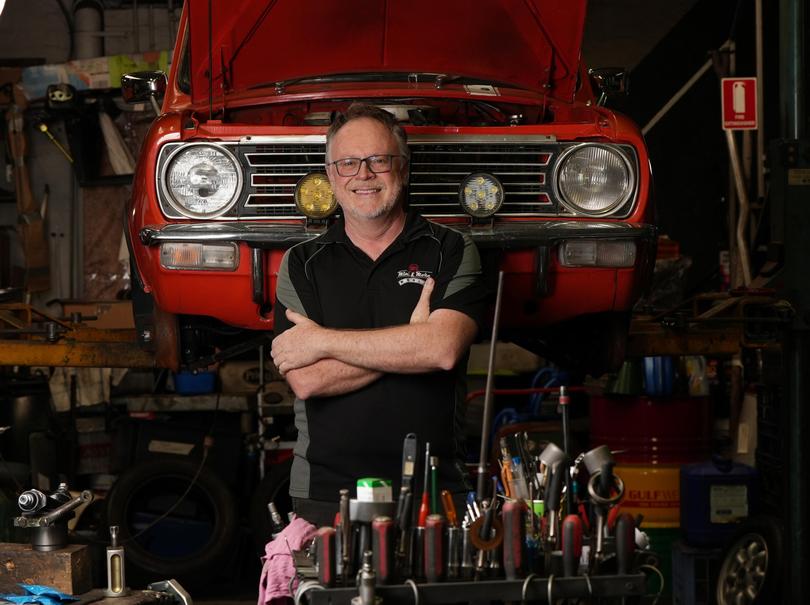
“The three main trades you need to keep an old car on the road and looking good — mechanic, motor trimmer and panel beater — those skills haven’t been taught, or at least taught properly, for 30-odd years,“ Mr Bergan told The Nightly.
“We’ve lost the ability to rewire a wiring harness, cast a cylinder head, set tappets or use a timing light, or do any of the jobs that we used to not have to think about because they were well-known skill sets.
“If there’s a problem with a modern car they’ll plug the vehicle into the mainframe of Mercedes or Volkswagen or whoever built it and they’ll be told what’s wrong and what to replace. Not fix, replace.
“There might be one or two senior operators that float around doing engine rebuilds or heavy gearbox work under warranty, but for the most part in the service centres of the big dealerships, you might have one qualified tradesman overseeing seven young helpers.
“They’re on this monotonous cycle — oil filter, brake and clutch — and they might do 25 services a day. It’s very repetitive and they’re getting maybe $25 or $30 an hour. You can’t survive in the northern beaches of Sydney on that, so they end up doing something else.”
About 1300km west of Mr Bergan, Peter Roberts oversees two dozen mechanics, body repairers, motor trimmers and auto electricians who ply their trade in his Adelaide Hills workshop.
Since 1965, Finch Restorations has specialised in ground-up rebuilds of cars and trucks. Most of them are classics, but some are just much-loved.
Finding workers with the patience and attention to detail needed at Australia’s oldest continually operating vehicle restoration business was always tough, but Mr Roberts reckons it’s becoming almost impossible.
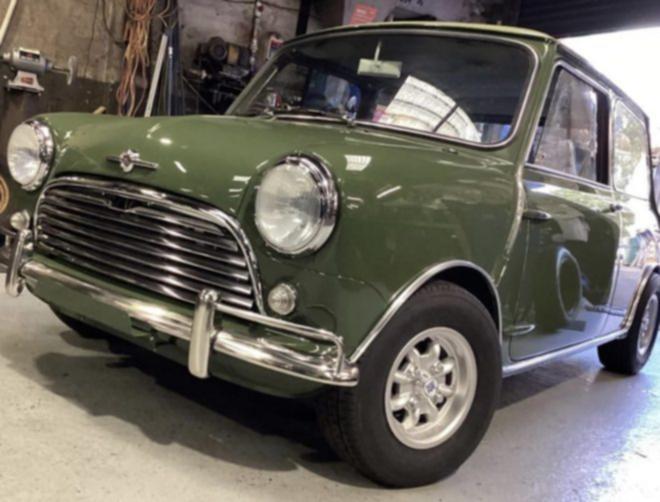
“With respect to the old-school skills shortage, that shortage is on top of the national skills shortage,” the Finch chief executive said.
“Dying knowledge of mechanical systems is, fairly, the most serious skill shortage or, rather, the most serious knowledge shortage.”
The skills shortage is not limited to what’s under the hood — it’s impacting the hood itself.
The trade of coach building, which has been around since a cart was put behind a horse and manifests itself today in panel-beating shops, is under particular threat.
Finding someone who can accurately shape an engine bonnet is just as difficult as getting a worker who understands the greasy intricacies of an old combustion engine.
The use of lead to smooth over weld scars and fill in imperfections is an art form that’s been under pressure ever since cheap plastic body fillers came on the market decades ago.
The skill has become even rarer courtesy of Chinese-made body replacements. Why fix a dent when you can replace the panel?
“Modern cars comprise throw-away plastic panels,” Mr Roberts explained. “We need panel-beaters and coach builders who understand metal finishing and can apply lead-loading.”
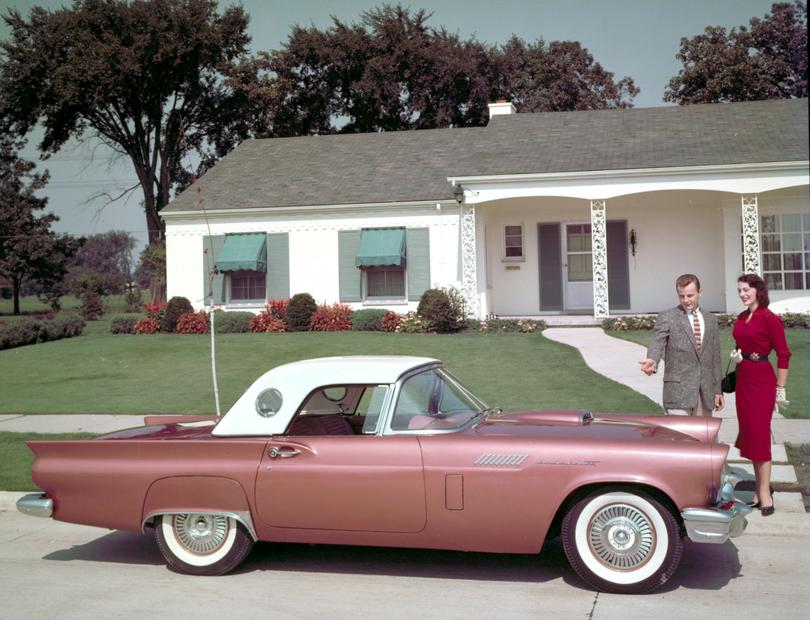
Most of the workers at Finch are in their late 40s.
“Our oldest employees, both coach builders, are aged 63 and in the mid-70s,” Mr Roberts said.
“In South Australia, there is only one TAFE/MTA apprentice course for panel-beating for every 20 mechanic courses.
“Neither type of course teaches old-school. In South Australia, they stopped training motor trimmer apprentices about 20 years ago.
“Knowledge of old mechanical and electrical components and systems is thinning quickly. For example, people that can pour and manufacture white metal bearings, which were used in many pre-war cars, are a dying breed.”
Then there’s the dearth of electroplaters. When it’s your job to bring back to life a Buick Roadmaster, Ford Edsel or Plymouth Fury you can’t afford a shortage of chrome.
As for the once-maligned trade of automotive spray painting, that’s a skill in such short demand a competent operator can charge $50,000 for one job. And the wait for the deep-pocketed customer could be 18 months.
On the face of it, the statistics suggest there are enough mechanics to go around.
The National Centre for Vocational Education Research reports that 5529 motor mechanic apprenticeships were completed across Australia last financial year.
That 24 per cent increase in the past 10 years has clearly failed to fill the gaps. The reason may be found in the corresponding figures for WA, where TAFEs yielded 921 apprentices in 2022-23.
The out-sized 84 per cent increase in completions over the past five years has not translated to boots on the ground in metropolitan workshops because graduates are hoovered up by the resources industry.
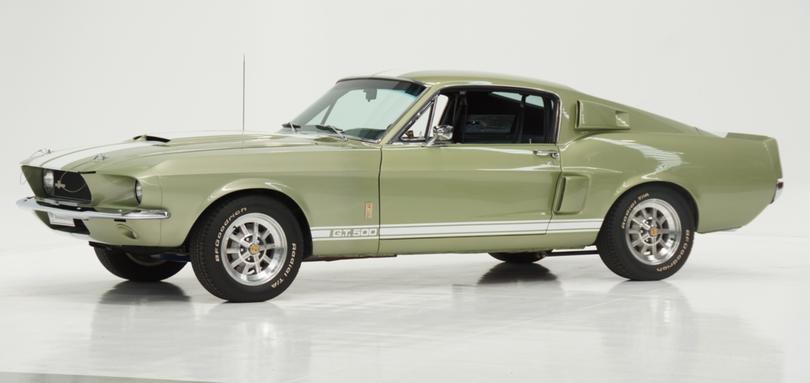
The fat margins enjoyed by iron ore giants such as BHP, Rio Tinto and Fortescue Metals Group means they can buy the talent.
Cash-up sandgropers might be able to afford the retro cars of their dreams, but they end up having to put them on a train to the Eastern States to get worked on because of the lack of local skills.
The owner of a 1963 Mini Cooper sent his vehicle to Mr Bergan at Mini and Moke World in Sydney for want of a restorer in Perth who was prepared to take on a nut-and-bolt, ground-up rebuild.
The hollowing out of suburban garages led half of Australian workshops to lose a technician in the past year. Research by the Australian Automotive Aftermarket Association conducted last year revealed 47 per cent of workshops had “hiring now” posters in their windows.
Close to a quarter of workshops had lost an apprentice in the past year and the service and repair industry was short about 27,000 qualified technicians and more than 13,000 apprentices.
In 2021, a Motor Trade Association of Australia report found half of automotive businesses were experiencing a shortage of labour.
Mr Bergan doesn’t need another report to tell him what he already knows.
“It will mean that those cars that are sitting in sheds rotting away will stay there instead of becoming something that makes people stop and look when they drive past on the road.”

